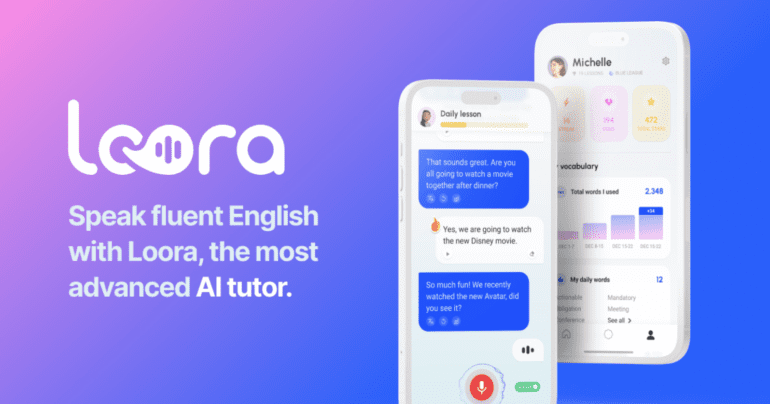TL;DR:
- Loora utilizes AI to provide personalized English language instruction through its iOS app.
- Founded by Roy Mor and Yonti Levin, Loora addresses the limitations of traditional language learning methods.
- The app offers diverse conversation topics and provides feedback on grammar, pronunciation, and accent.
- Loora aims to cater to “serious learners” seeking fluency for personal and professional growth.
- Despite skepticism about language education apps, Loora secured $12 million in Series A funding.
- The funding will fuel the development of Loora’s Android app and the expansion of its workforce.
- Loora plans to launch an enterprise service to tap into the business-to-business market segment.
Main AI News:
In the realm of professions susceptible to automation by artificial intelligence, the role of a language teacher stands prominently at risk. The emergence of AI as a viable substitute for human language experts, as deemed by certain employers, including Duolingo, suggests a pragmatic solution driven by cost efficiencies despite inherent lexical limitations in AI-translated texts. While acknowledging the lexical richness inherent in human translations, the allure of cost savings seems to outweigh concerns for some decision-makers.
However, Loora, a pioneering company in this domain, asserts that AI can address scalability challenges that are unattainable by traditional language teaching methods. Founded by Roy Mor and Yonti Levin, Loora capitalizes on conversational AI to facilitate English language learning for students. The company’s iOS application allows users to engage in dialogue with a chatbot, which provides feedback on their English proficiency.
Mor articulated the genesis of Loora as a response to the inadequacies prevalent in existing language learning platforms and the prohibitive costs associated with human tutors. Loora, whose namesake derives from the Arabic term for “language,” offers users a plethora of AI-generated conversation topics spanning various domains such as sports, technology, business, fashion, literature, and entertainment. The app provides comprehensive feedback encompassing grammar, pronunciation, accent, and even offers direct translations in the users’ native language.
Furthermore, Loora adopts a personalized approach to language instruction by evaluating users’ proficiency over time and tailoring conversations accordingly. This distinguishes Loora from its counterparts, which often prioritize gamification over substantive learning outcomes. Mor emphasizes Loora’s commitment to fostering fluency in English among “serious learners” aspiring for personal and professional development.
Despite the prevalence of English learning platforms with similar features, Loora distinguishes itself by focusing on targeted language learning objectives, such as business communication skills. Mor argues that Loora’s AI-driven approach transcends the limitations of traditional tutors, particularly in specialized domains where domain-specific knowledge is paramount.
However, the efficacy of language education apps, including Loora, is not without scrutiny, particularly regarding oral proficiency improvement. Studies suggest that hybrid learning models combining online resources with traditional classroom instruction yield optimal outcomes for language learners.
Nevertheless, Loora’s recent Series A funding round, led by QP Ventures and supported by Hearst Ventures, Emerge, and Two Lanterns Venture Partners, underscores investors’ confidence in its growth potential. With a total raised capital of $21.25 million, Loora intends to bolster its Android application development, enhance core AI capabilities, and expand its workforce. Additionally, the company aims to diversify its revenue streams by launching an enterprise service catering to corporate clients, thereby tapping into the lucrative business-to-business market segment.
As Loora embarks on its expansion journey, fueled by robust financial backing and a steadfast commitment to innovation, it is poised to redefine the landscape of English language learning and cater to the evolving needs of learners worldwide.
Conclusion:
Loora’s innovative approach to language learning, backed by substantial investment, signals a paradigm shift in the market. By leveraging AI technology to address the shortcomings of traditional methods, Loora is well-positioned to capture a significant share of the growing English language learning market. Its expansion into enterprise services further underscores its commitment to catering to diverse customer needs and solidifies its position as a frontrunner in the industry.

